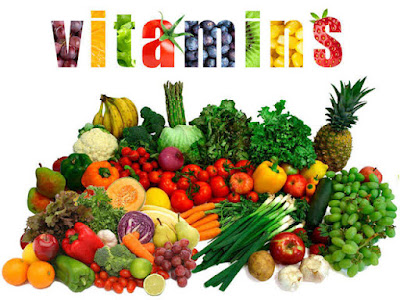.jpeg)
The importance of food depends on its ingredients. Vitamins are the most important of nutrients. The word vitamin is derived from the Latin words "vital" (meaning essential) and "amines" (meaning life).
The first regularly discovered vitamin B-1 (Thiamine, Vitamin B1) was discovered in 1910, while the last discovered vitamin B-9 (Vitamin B9, Folic Acid) was discovered in 1941. Many diseases such as beriberi, scurvy, pellagra, and rickets are caused by a lack of certain vitamins in the diet.
Importance of vitamins and their sources
How important vitamins are for our physical health and which vitamin can be obtained from which food. Its brief description is as follows.
Vitamin A (Vitamin A, Retinol)
The function of this vitamin is to keep the eyes, skin, hair, teeth and gums healthy. It is found in milk, butter, eggs, green leafy vegetables and liver.
Vitamin B1
It is also called "thiamine". It produces energy in the body by releasing carbon dioxide from glucose. It is found in grains, milk, poultry, fish, liver, yeast, flour, legumes and lean meats.
Vitamin B2
It is also called "riboflavin". It supplies the body with energy from carbohydrates, proteins and fats. It is found in abundance in milk, grains, liver, lean meats, eggs and leafy vegetables.
Vitamin B6
It also has a name "pyridoxine". It plays an important role in the formation of some other proteins. Makes lipids and red blood cells. It is best found in whole grains, leafy vegetables and lean meats.
Vitamin B12 (Cyanocobalamin)
It is essential for the formation of nucleic acids. Red blood cells are also formed due to its presence. It maintains the nervous system. It is found in liver, kidney, fish, milk and animal foods.
Folic Acid (B9)
It is also called "Folate". It is also essential for nucleic acids and some other proteins. It plays an important role in the formation of red blood cells. It is found in liver and leafy vegetables.
Vitamin B5
Pantothenic acid (Vitamin B5, It is a molecule that is needed by the body by changing carbohydrates, fats and proteins. It is also necessary for the nervous system and the birth of certain hormones. , found in leafy vegetables, liver, kidney and nuts.
Vitamin B3: Niacin
It is essential for reactions in cells that produce energy. It is found in eggs, meat, liver and grains.
Vitamin B7
It is essential for obtaining energy and fatty acids from glucose. Performs many chemical functions of the body. Found in liver, kidney, eggs and leafy vegetables.
Vitamin C (Ascorbic acid)
It keeps bones, teeth and blood vessels healthy. It plays an important role in the formation of collagen. Collagen is a protein that supports body structures such as skin and bone. It is abundant in leafy vegetables and fruits, especially fruits with a bitter taste.
Vitamin D (Calciferol)
It is very important for strong teeth and bones. It is also very important for the absorption of phosphorus and calcium in the body. Found in abundance in egg yolks, cod liver oil, milk and salmon.
Vitamin E (Vitamin E, Tocopherol)
It helps in the formation and protection of red cells and muscles. It is found in cereals and vegetable oils and ghee.
Vitamin K (Phytonadione)
This is essential for blood clotting (otherwise it becomes difficult to stop bleeding from a wound). It is found in abundance in leafy vegetables.



.jpeg)

